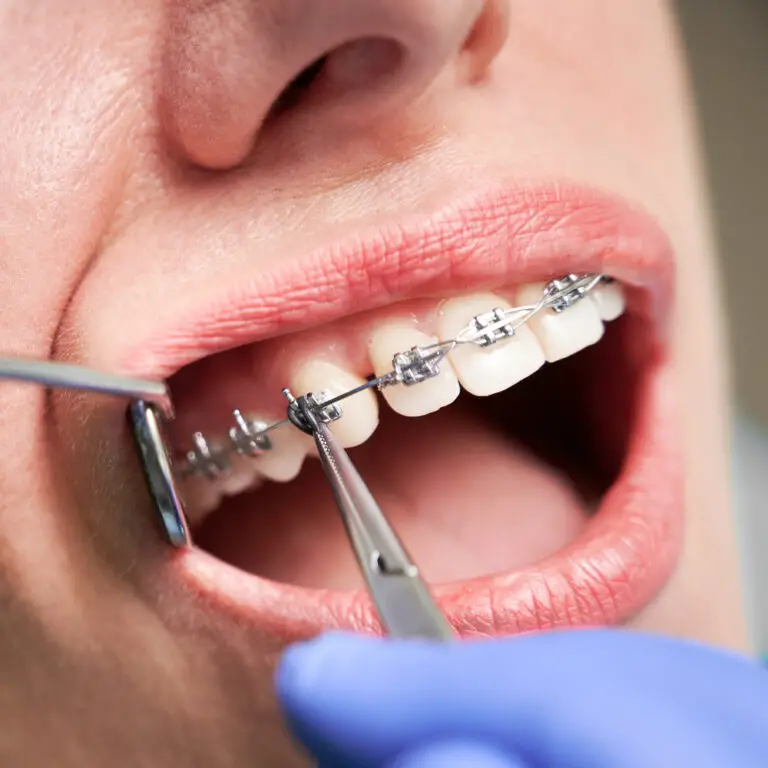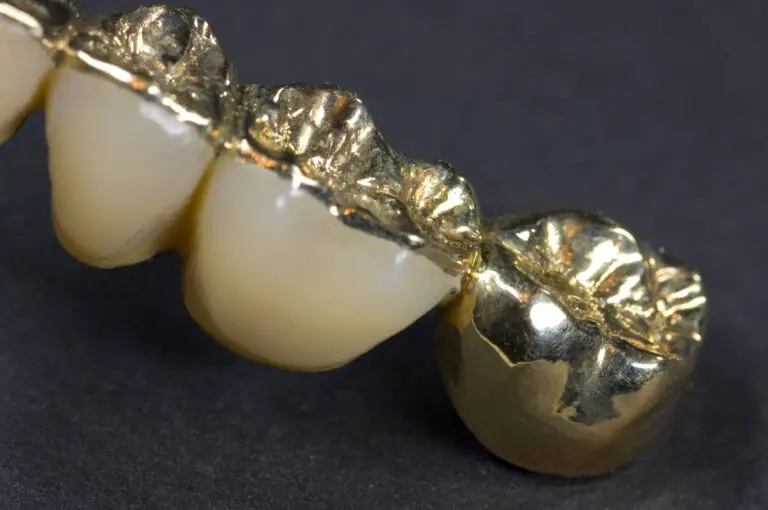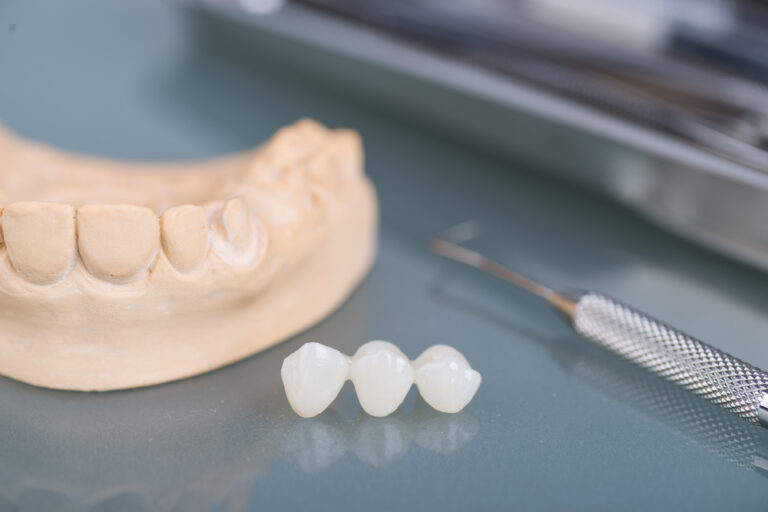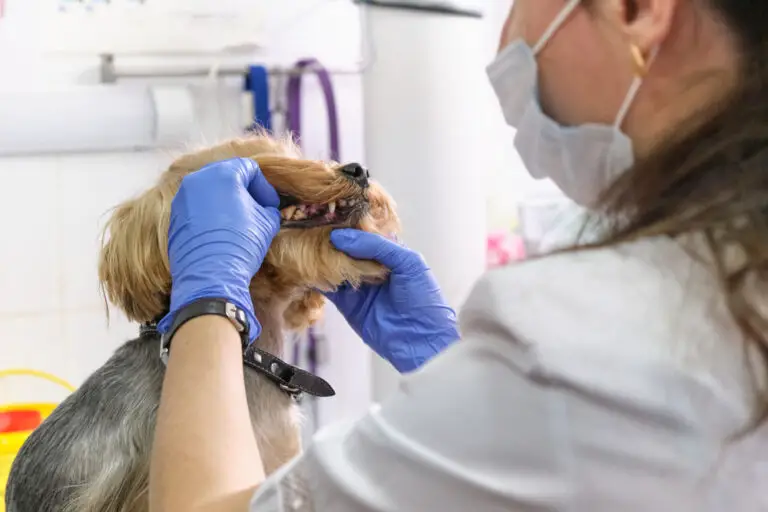What are wisdom teeth and their purpose?
Wisdom teeth are the third and final set of molars that emerge in the back of the mouth typically between the ages of 17-25. Most people have 4 wisdom teeth, one in each quadrant of the mouth, that erupt behind the 12 permanent teeth that preceded them.
Wisdom teeth evolved in our ancestors for an extra set of molars to help grind down tough foods and plant materials. However, as human diets and jaws have evolved to be smaller, wisdom teeth have become vestigial structures that often emerge partially, become impacted, or never erupt at all.
Wisdom tooth anatomy
Wisdom teeth have multiple roots and cusps for grinding. The upper wisdom teeth have 3 roots while the lower wisdom teeth typically have 2 roots. Wisdom teeth often emerge at an angle or are irregularly positioned since there is limited space for them to erupt properly in modern jaws.
How many wisdom teeth can people have?
While most people have 4 wisdom teeth, some have more or less:
- 0 wisdom teeth – Some people are born without any wisdom teeth and have only 28 permanent teeth instead of the typical 32 with wisdom teeth. This condition is known as hypodontia or oligodontia when 6 or more teeth are missing. It affects around 2% of the population.
- 1-3 wisdom teeth – It’s possible but less common to have only 1, 2, or 3 wisdom teeth emerge rather than the typical 4. This is called hypodontia as well.
- 5 wisdom teeth – A small percentage of people have a fifth wisdom tooth behind one of the other 4. This is known as hyperdontia and occurs in less than 5% of the population.
- 6+ wisdom teeth – Having more than 5 wisdom teeth is very rare but has been documented in some unique cases. The maximum number is around 10 extra wisdom teeth in extreme hyperdontia cases.
Frequency of 5 wisdom teeth
Research shows that around 3-5% of the population has at least one supernumerary wisdom tooth, meaning more than the typical 4. However, having a full set of 5 functional wisdom teeth is rarer, estimated to occur in less than 1% of people. There is some evidence it may be more common in males.
Possible locations and types of a 5th wisdom tooth
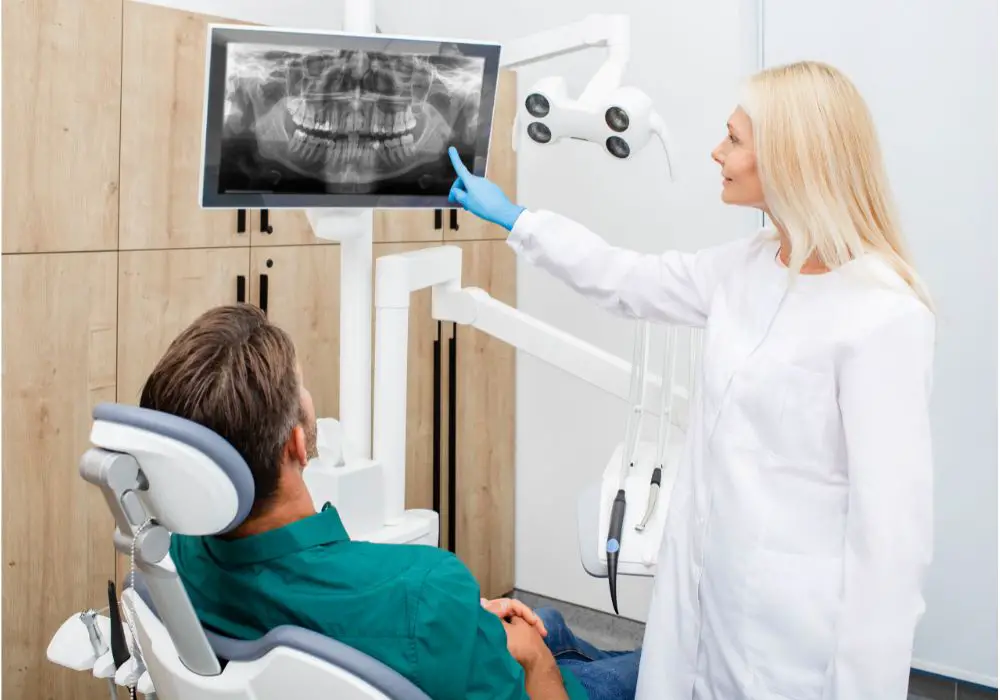
A fifth wisdom tooth can emerge in a couple different locations and is classified into different types:
Distomolars
Distomolars are the most common type of extra wisdom tooth. Also called disterminals, these emerge from behind one of the other 4 wisdom teeth, typically the upper wisdom teeth. Distomolars have their own follicle and roots. They are considered a type of supernumerary tooth.
Paramolars
Paramolars are extra wisdom teeth that emerge alongside one of the normal wisdom teeth in the same quadrant. They are much rarer than distomolars. Paramolars may share part of the same follicle as the adjacent wisdom tooth.
Mesiodens
A mesiodens is a very rare type of extra tooth that emerges between the two central incisors in the upper or lower jaw. They are usually smaller than normal teeth. Mesiodens are also considered a type of supernumerary tooth but not a wisdom tooth.
Complications caused by extra wisdom teeth
While some people can have 5 fully erupted and functional wisdom teeth, most of the time extra wisdom teeth cause problematic symptoms:
- Impaction – The jaw often cannot accommodate the extra tooth which becomes blocked by other teeth and unable to fully emerge. This happens in around 75% of cases. Impaction causes pain, swelling, and infection risk.
- Tooth crowding or displacement – Additional wisdom teeth can cause overcrowding and force other teeth out of alignment. This is sometimes called a “domino effect.”
- Cysts or tumors – Fluid-filled cysts or benign tumors can develop around impacted wisdom teeth. Cysts may destroy surrounding bone and roots.
- Root exposure and tooth decay – Nearby teeth may suffer root exposure and cavities from impacted wisdom teeth pressing against them.
- Pericoronitis – Impactions allow bacteria to get trapped leading to infection and inflammation in the gum tissue, known as pericoronitis. This causes pain and swelling.
- Periodontal disease – Impactions make plaque control difficult leading to accelerated gum disease and bone loss called periodontitis.
Impacted vs erupted wisdom teeth
Erupted wisdom teeth have fully emerged in the mouth while impacted wisdom teeth remain unerupted under the gums:
| Type | Description |
|---|---|
| Impacted | Blocked from fully erupting, usually by other teeth |
| Erupted | Fully emerged through the gums into the mouth |
Even partial impaction that leaves some of the tooth exposed can still lead to infection and other problems. Full bony impaction where the tooth remains completely under the gums is the most problematic.
Should 5 wisdom teeth be removed?
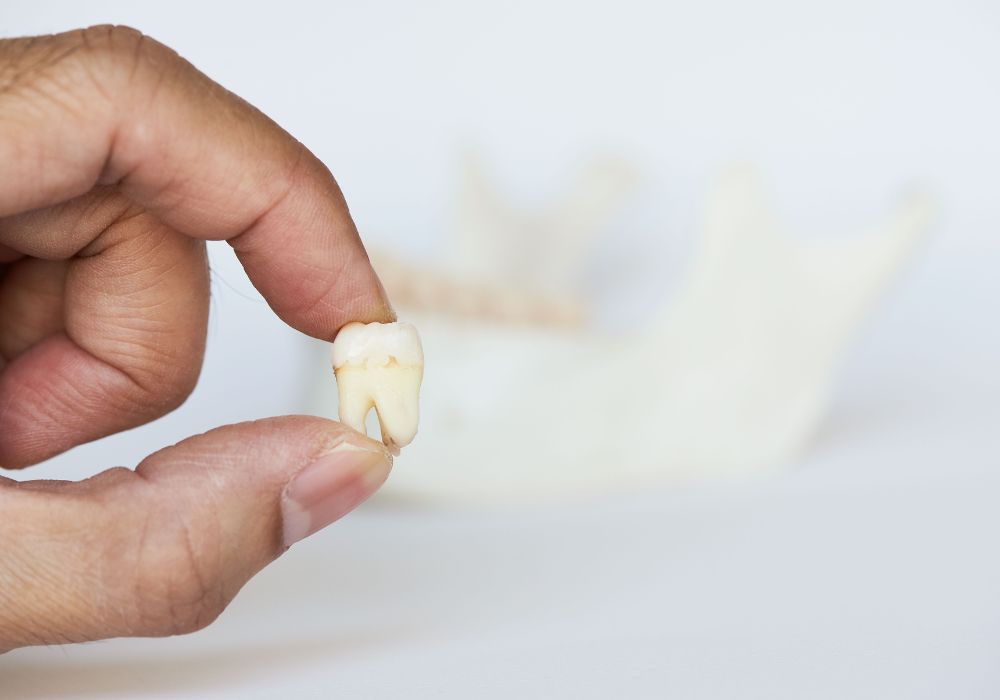
Due to the high likelihood of impaction and other problems, dentists typically recommend removing any extra wisdom teeth including a fifth one. Guidelines include:
- Removal if impacted or causing symptoms
- Removal as preventative measure if eruption unlikely
- Monitoring if fully erupted and cavity-free
Removal is safest when done before complications develop and when the roots are fully formed between ages 17-25. Removal prevents future problems as the jaw continues to mature during the late teens and early 20s.
Wisdom tooth removal procedures
Dentists have two options for extracting wisdom teeth depending on eruption status:
Simple extraction – For erupted wisdom teeth this involves numbing the area and simply pulling or lifting out the tooth. Simple extractions have quicker recovery.
Surgical extraction – Impacted teeth require cutting into the gum and removing bone to access and remove the tooth. Sometimes the tooth is sectioned into pieces for removal. Surgical extractions have longer recovery time.
Healing takes about 1 week for simple extractions and 2-3 weeks for surgical extractions. Pain, swelling, and bruising are common afterwards.
Why do some people develop extra wisdom teeth?

Research into why extra wisdom teeth occur is limited but some contributing factors may include:
- Genetics – Tendencies can run in families. Scientists have identified certain genetic markers associated with hyperdontia.
- Ethnicity – Some ethnic groups seem to have higher rates such as people of African descent.
- Environmental causes – Factors like availability of orthodontic care during childhood may play a role.
- Evolutionary changes – As human diets and jaws evolved, extra wisdom teeth became more problematic.
Further research is still needed to understand the underlying biological causes for supernumerary wisdom teeth. Proper oral hygiene and preventative dental care from an early age may help reduce complications if extra wisdom teeth develop.
FAQ about having 5 wisdom teeth
Here are answers to some frequently asked questions about having a 5th wisdom tooth:
Is it genetic to have extra wisdom teeth?
Research has found that genetics can play a role in tendencies for extra wisdom teeth, with the trait running in families. However, environmental factors in jaw and tooth development also influence this.
Does a 5th wisdom tooth mean I have extra teeth overall?
Not necessarily. Some people are born with extra tooth buds leading to additional wisdom teeth, but their overall permanent tooth count is still around the normal 32.
Are supernumerary wisdom teeth always a problem?
They can be. Fully erupted and functional extra wisdom teeth that don’t crowd other teeth might not need removal. But most extra wisdom teeth become problematic due to impaction in the confined space.
Can 5 wisdom teeth come in straight?
It’s possible but unlikely. The additional wisdom tooth usually emerges at an odd angle or position since there is limited space for it to erupt properly. Even if somewhat straight, it can still affect other teeth.
Should I remove a fifth wisdom tooth as a teenager?
Dentists recommend removal between ages 17-25 before complications occur and when roots are fully formed. Removing them as a teenager prevents future problems as your jaw continues to mature. Monitoring is an option if not causing symptoms.
Conclusion
In summary, it is uncommon but possible for people to develop 5 wisdom teeth instead of the typical 4. These extra wisdom teeth are called supernumerary teeth and usually create complications such as impaction that can damage other teeth and oral health. Various factors like genetics may influence the presence of additional wisdom teeth. To prevent problems, dentists typically recommend removal of any extra wisdom teeth in the late teenage years or early 20s when roots are mature. With proper extraction, 5 wisdom teeth can usually be managed.


